Strategies for Small Business Owners to Prepare for Inflation
Lets Get Started
Inflation is a reality that small business owners must confront, especially as the economy recovers from the effects of the pandemic. Understanding how inflation can impact your bottom line is essential for maintaining profitability and long-term success. This article will explore strategies small business owners can use to navigate inflationary pressures and maintain a healthy financial position.
What is Inflation?
Inflation is the rate at which the general level of prices for goods and services is rising over time, leading to a decrease in the purchasing power of money. It is typically measured using the Consumer Price Index (CPI) or the Producer Price Index (PPI), which track the changes in the prices of a basket of goods and services over a specified period. Inflation can be driven by various factors, including increased demand for goods and services, rising production costs, and changes in monetary policy.
For small businesses and small business owners, inflation can have both direct and indirect effects. Here are some ways in which inflation impacts small businesses and their owners.
Understanding the Effects of Inflation on Small Businesses
Increased Costs and Supply Chain Disruptions
High inflation can lead to increased costs for goods and services, which can impact small business owners’ ability to maintain profit margins. Additionally, inflationary periods often coincide with supply chain disruptions, leading to shortages and price increases for raw materials and other essential inputs.
Also, as inflation rises, the purchasing power of the money held by small business owners decreases. This means that the same amount of money will buy fewer goods and services, leading to increased costs for business operations.
Labor Market Challenges
Inflation can also affect the labor market, as workers may demand higher wages to keep up with rising living costs. This can put additional pressure on small business owners who are already struggling to manage employee retention and maintain a competitive edge in a tight labor market.
Interest Rate Hikes
The Federal Reserve often responds to inflation by raising interest rates, which can make borrowing more expensive for small businesses. This can significantly impact cash flow and working capital, making it essential for business owners to be proactive in preparing for inflation.
These increased interest rates make accessing credit for business expansion, purchasing inventory, or other operational needs more expensive.
Uncertainty and reduced consumer confidence
Business owners are paying more for goods. Their customers are too. Inflation can create uncertainty in the economy, leading to reduced consumer confidence and decreased spending. This can negatively impact small businesses, as customers may become more cautious with their spending and less likely to make discretionary purchases.
Price-setting challenges
In periods of high inflation, small business owners may struggle to determine the appropriate pricing strategy for their goods and services. Raising prices too quickly could lead to decreased demand and customer dissatisfaction, while not raising prices enough may result in diminished profit margins.
The Importance of Preparing Your Business for Inflation
It’s essential for small businesses to prepare for inflation for several reasons. By anticipating and adapting to the effects of inflation, small business owners can maintain their competitiveness, profitability, and long-term success in a dynamic economic environment.
Maintain competitiveness: Inflation can affect different businesses and industries in various ways, leading to uneven price increases across the market. By preparing for inflation, small businesses can adjust their pricing strategies, streamline operations, and cut costs where necessary, enabling them to stay competitive and attract customers even during inflationary periods.
Preserve profitability: As the cost of goods and services increases due to inflation, small businesses face the challenge of maintaining profit margins. By proactively planning for inflation, small business owners can identify opportunities to reduce expenses, increase efficiency, and explore new revenue streams to help preserve their profitability.
Ensure financial stability: Preparing for inflation can help small businesses maintain financial stability by managing cash flow, securing favorable credit terms, and adjusting their investment strategies. This proactive approach can make it easier for small businesses to weather the financial challenges presented by inflation and avoid potential cash flow issues or the need for emergency financing.
Retain and attract employees: As the cost of living increases with inflation, employees may seek higher wages or look for new opportunities with better compensation. By preparing for inflation, small businesses can develop strategies for employee retention, such as offering competitive wages, benefits, or growth opportunities, ensuring that they can attract and retain the talent they need to succeed.
Foster customer loyalty: Inflation can lead to price increases, which may cause customers to reevaluate their spending habits and brand loyalties. By being transparent about the reasons for price increases and taking steps to maintain product quality or service levels, small businesses can foster customer loyalty and minimize the potential negative impact of inflation on customer relationships.
Adapt to market changes: Inflation can signal broader shifts in the economy, such as changes in consumer demand, supply chain disruptions, or fluctuations in currency exchange rates. By preparing for inflation, small businesses can better adapt to these market changes and seize new opportunities for growth or expansion.
Strategies for Preparing for Inflation
1. Streamline Business Processes and Implement Automation
One of the best ways to prepare for inflation is by streamlining your business processes and implementing automation where possible. This can help to reduce labor costs and increase efficiency, allowing your business to remain competitive even as costs rise.
Utilize Technology
Invest in technology that can help automate repetitive tasks, such as bookkeeping, inventory management, and customer service. This can free up valuable time for you and your employees to focus on higher-value tasks and strategic initiatives.
Evaluate Supply Chain Efficiency
Examine your supply chain to identify areas where inefficiencies may lead to increased costs. Consider working with suppliers offering more competitive pricing or less vulnerable to supply chain disruptions.
2. Reassess Your Pricing Strategy
If your costs are rising due to inflation, it may be necessary to reassess your pricing strategy to maintain profitability.
Consider Raising Prices
While raising prices can be difficult, passing on some of the increased costs to your customers may be necessary to preserve your bottom line. Be transparent with your customers about the reasons for the price increases and emphasize the value they will continue to receive.
Offer Subscriptions or Bundled Services
Another approach to managing price increases is offering subscription-based or bundled products. This can help to lock in customers at a set price and provide a more predictable revenue stream.
3. Focus on Employee Retention and Training
As inflation impacts the labor market, it is essential to prioritize employee retention and training to keep your workforce engaged and productive.
Invest in Employee Training
Provide opportunities for your employees to develop new skills and grow within your organization. This can not only improve productivity but also increase employee satisfaction and loyalty.
4. Maintain a Healthy Cash Flow
Having a healthy cash flow is crucial for navigating periods of inflation, as it allows your business to better manage increased costs and interest rate hikes.
Utilize a Line of Credit
Consider establishing a line of credit with a financial institution to provide a safety net for unexpected expenses or cash flow disruptions. This can help ensure your business has access to the funds it needs to weather inflationary periods.
Monitor Your Cash Flow Regularly
Regularly review your cash flow to identify areas where improvements can be made, such as reducing outstanding receivables, renegotiating payment terms with suppliers, or cutting non-essential expenses.
Diversify Your Revenue Streams
Explore opportunities to diversify your revenue streams, such as offering new products or services, targeting new customer segments, or expanding into new markets. This can help to mitigate the risks associated with inflation and maintain a more stable cash flow.
5. Invest in Real Estate and Other Inflation-Resistant Assets
Real estate can be a valuable investment for small business owners during periods of inflation, as property values tend to rise alongside the inflation rate. Owning your own commercial property can also help to reduce your exposure to rising rental costs.
Leverage Low-Interest Rates
If you are considering purchasing real estate, take advantage of low-interest rates before they increase due to inflation. This can help to reduce the cost of borrowing and improve your long-term financial position.
Invest in Other Inflation-Resistant Assets
In addition to real estate, consider investing in other assets that tend to perform well during periods of inflation, such as commodities or inflation-protected securities. This can help to diversify your investment portfolio and protect your wealth from the eroding effects of inflation.
Preparing for Inflation: A Proactive Approach
Inflation can present significant challenges for small business owners, but with a proactive approach and the right strategies in place, it is possible to navigate these challenges and maintain a healthy, thriving business. By streamlining operations, reassessing pricing strategies, focusing on employee retention, managing cash flow, and investing in inflation-resistant assets, small business owners can prepare for the uncertainties of inflation and position their businesses for long-term success.





